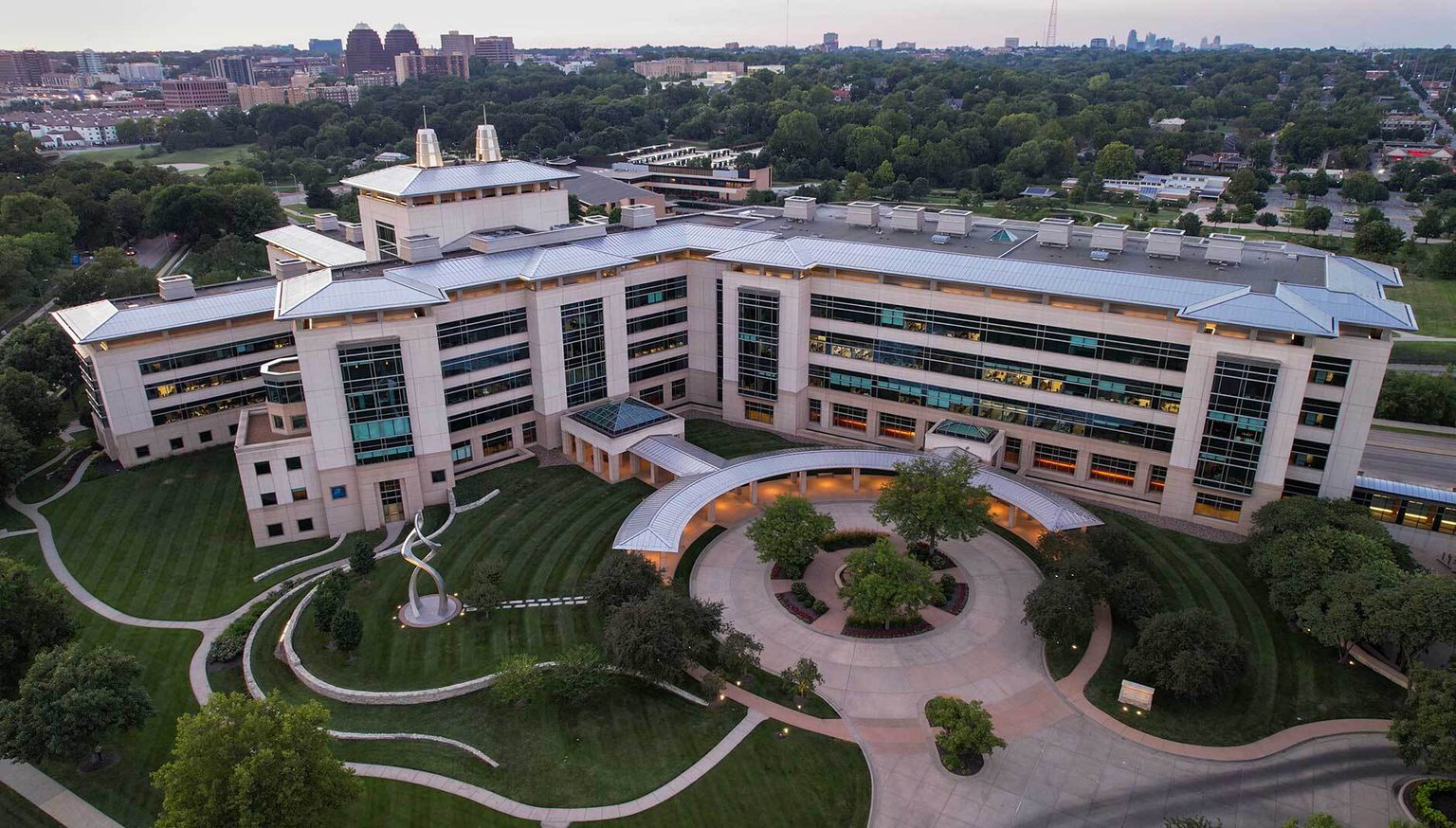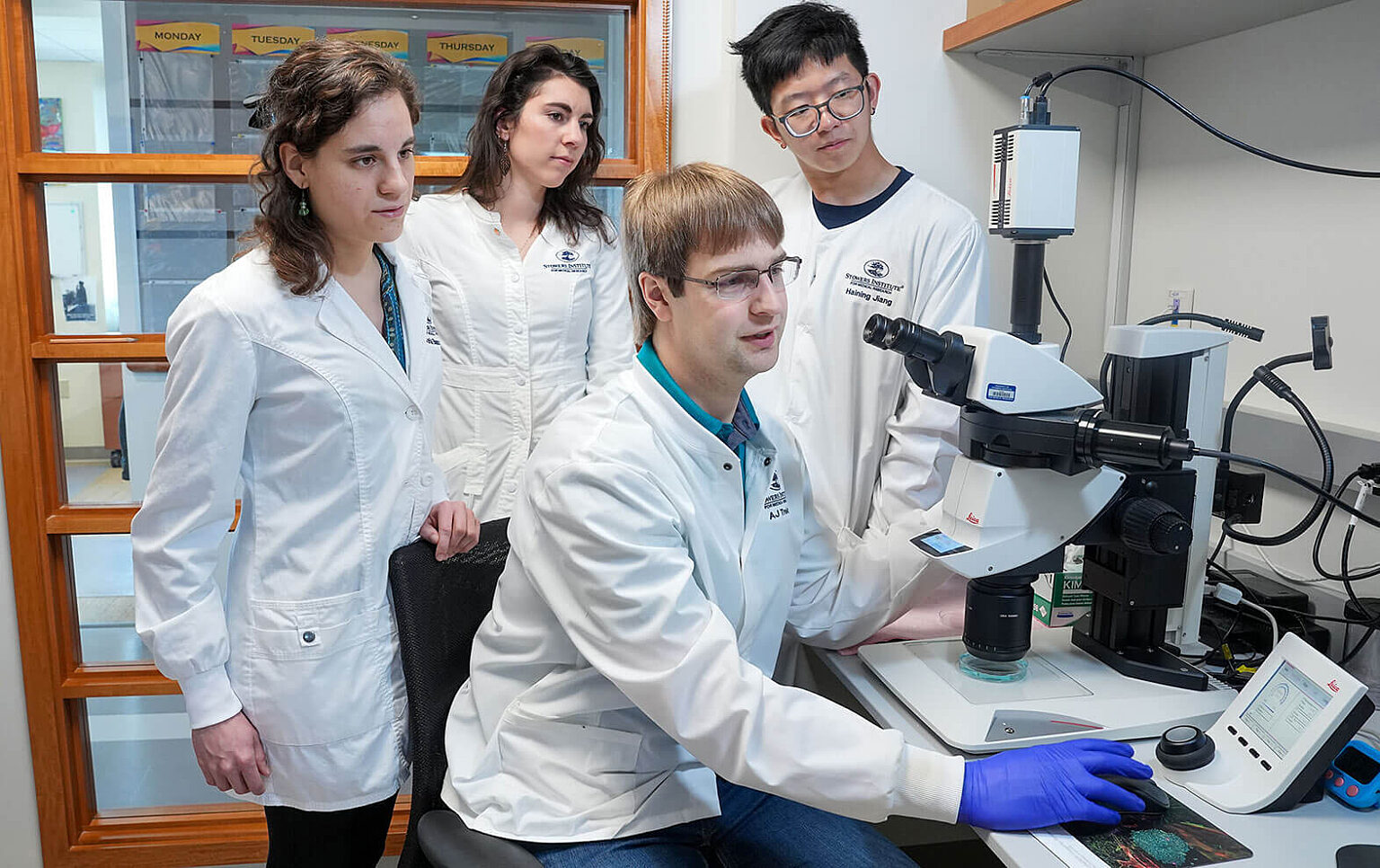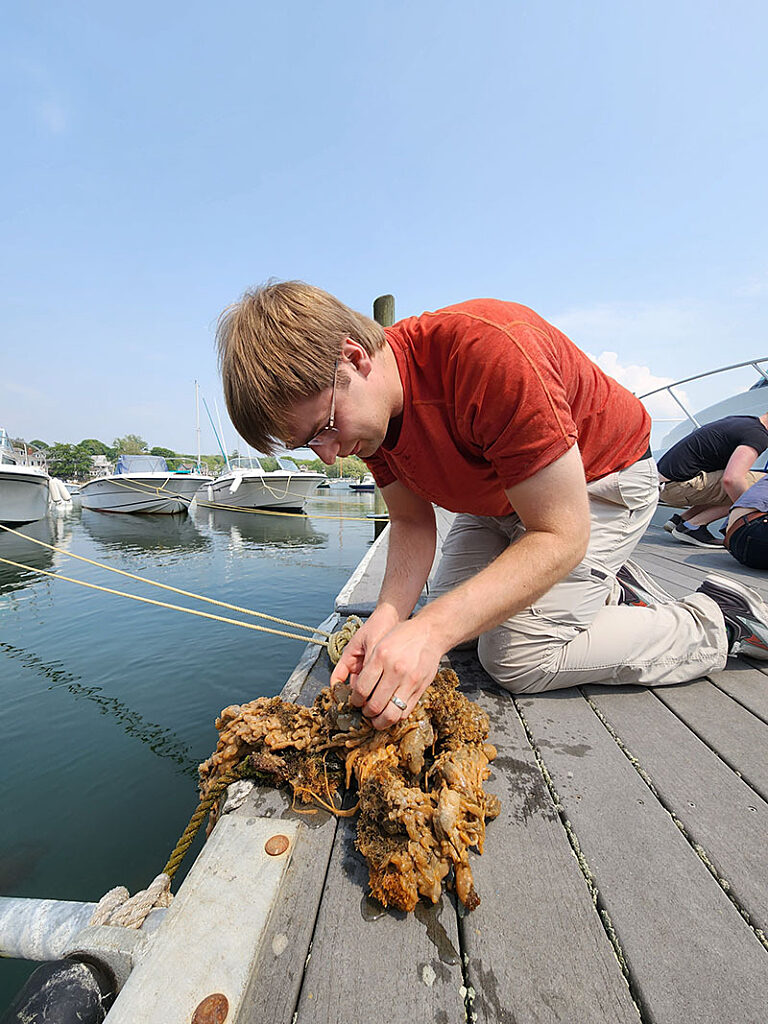News

18 December 2025
2025 in Review
Eleven key moments and achievements from the Stowers Graduate School in 2025
Read Article
The Graduate School of the Stowers Institute for Medical Research
News
Predoctoral Researcher A.J. Treichel received an F31 fellowship award from the National Institutes of Health

Stowers Graduate School Predoctoral Researchers (from left) María José (Majo) Blanco Salazar, Anna Galligos, Haining Jiang, and A.J. Treichel (center).
Predoctoral Researcher A.J. Treichel recently received a coveted three-year F31 fellowship award from the National Institutes of Health (NIH) to enrich his Ph.D. education and training. In his fellowship application, Treichel proposed to study how very small, overlooked proteins have large impacts on early vertebrate development.
The F31 fellowship is part of the Ruth L. Kirschstein Predoctoral Individual National Research Service Award program intended to augment the development of predoctoral researchers into productive, independent research scientists.
“The fellowship application process was a humbling experience—writing, submitting, getting feedback, and then rewriting and resubmitting. It was a lot of work, and it feels good to see it pay off,” said Treichel. “My advisor was extremely supportive throughout the entire process, but he let me fly when it came to writing the application and responding to the comments of the reviewers. Because of his approach, I have gained a new level of confidence as a writer and as a scientist.”
Treichel joined the Stowers Graduate School Ph.D. program in 2020 and is performing thesis research in the lab of Stowers Associate Investigator Ariel Bazzini, Ph.D., which studies how genes and their resulting proteins are regulated in development and disease.
Proteins are the main drivers of all cellular functions. From a single fertilized egg, the precise coordination of cell division, proper signaling, movement of cells, and their differentiation that determines which organs and tissues they will become is governed by many different proteins.
Advanced technologies have identified hundreds of small proteins called microproteins that are synthesized from small sequences of RNA messages. One of these, APELA, has been found to play a vital role in zebrafish and mouse heart development. In humans, this same protein maintains embryonic stem cells in a pluripotent state, so they can differentiate into any type of cell when needed.

Treichel collecting at the Marine Biological Laboratory during the 2023 Embryology course.
Despite the importance of APELA, the function of hundreds of other microproteins remain uncharacterized. Treichel’s research funding will be applied to identify their roles in coordinating how a fully formed adult arises from a single cell. Using zebrafish as a system to study vertebrate development and a novel system called CRISPR/Cas13d developed in the Bazzini Lab, Treichel plans to selectively turn off single proteins to examine their impact on development.
A larger aim is that this type of investigation will ultimately uncover similar processes in humans that when not properly synchronized cause congenital conditions and diseases. Characterizing microprotein function may unveil potential therapeutic and diagnostic tools for understanding and mitigating human diseases originating from developmental disruptions.
“In addition to completing my project, this funding that will allow me to gain a myriad of professional science skills,” said Treichel who views this award as helping both his current and future scientific endeavors. “Due to both the generous support of the Stowers Graduate School and my F31 scholarship, I was able to fulfill one of my scientific dreams and attend the 2023 Embryology course at the Marine Biological Laboratory where I learned many techniques to study diverse animal embryos and networked with countless scientists. I am already starting to integrate both new techniques and collaborations into my work at Stowers, and I see this continuing for my scientific career.”
Fellowship funding is from the Eunice Kennedy Shriver National Institute of Child Health and Human Development of the NIH.
News

18 December 2025
Eleven key moments and achievements from the Stowers Graduate School in 2025
Read Article
News
24 November 2025
Students working with Pillai can look forward to studying deep evolutionary biology paired with advanced protein biochemistry and artificial intelligence to investigate and explore these questions.
Read Article
News
19 November 2025
Sankari believes the Stowers Graduate School is a place for emerging scientists to pursue their passions, contribute to discoveries, and achieve success.
Read Article
